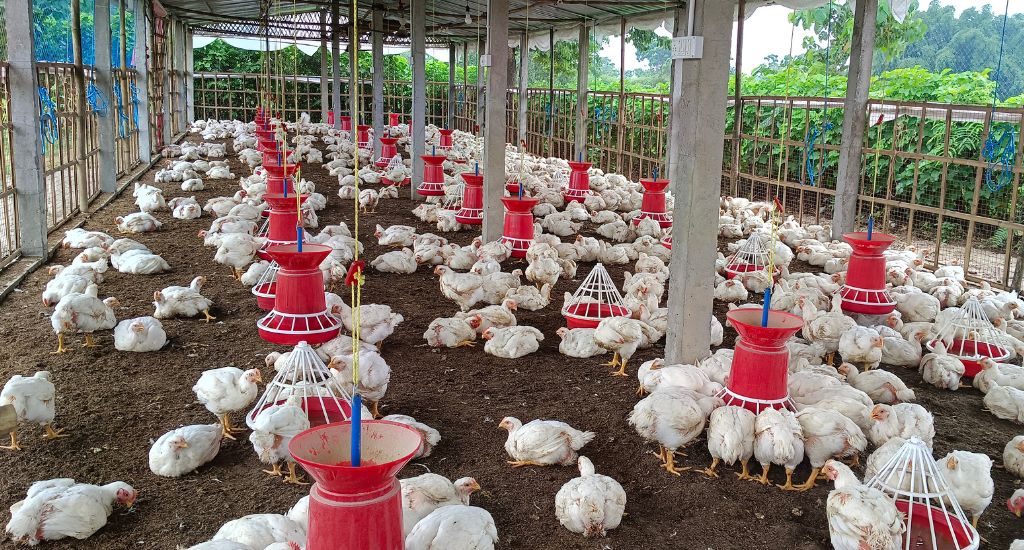
Bengal farmers bear brunt of Assam poultry ban
Aftershocks of Assam’s bird flu-related ban continue to rattle the poultry industry in Bengal even after the withdrawal of curbs, resulting in severe losses for farmers.

Aftershocks of Assam’s bird flu-related ban continue to rattle the poultry industry in Bengal even after the withdrawal of curbs, resulting in severe losses for farmers.
Alok Singh devotes himself day and night to the well-being of the chicks on his poultry farm, striving to nurture them into healthy, market-ready fowls. He had recently embarked on the journey of entrepreneurship in the quaint village of Motherjot, nestled in the heart of Bengal’s Darjeeling district. The 30-year-old chose to follow his dreams rather than tread the conventional path of seeking employment. He set up his poultry farm with an initial investment of Rs 3 lakh.
However, the poultry industry in the region has been dealt a devastating blow, leaving Singh and many others grappling with uncertainty.
“I am a contractual farmer, and a company supplies us with chicks that we must raise to a marketable size and return. We earn a return for each chicken. Subsequently, the company sells them in various parts of the state and even outside. However, the current state of the industry has been making me question whether I made the right decision,” Singh said.
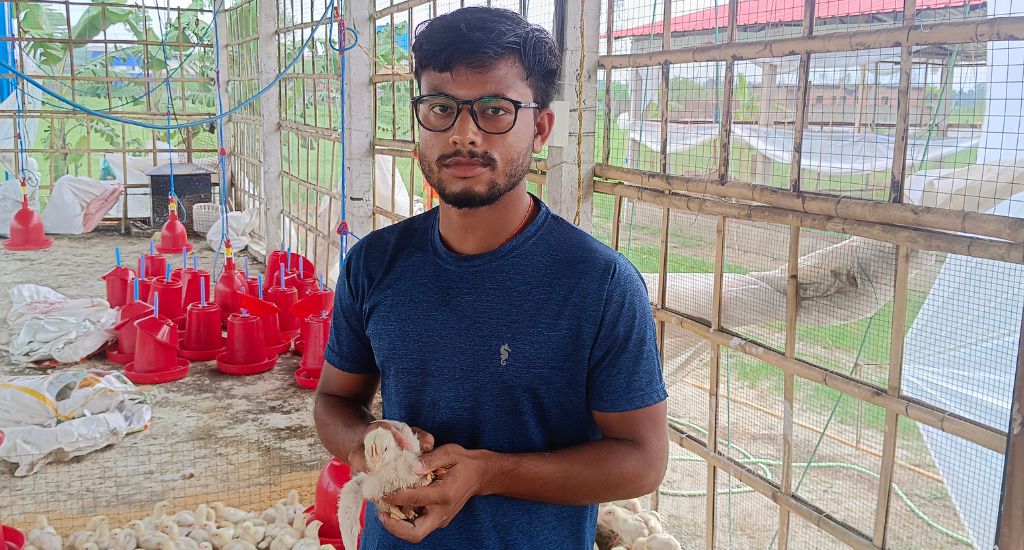
The veterans in the trade estimate that the poultry industry in northern Bengal has suffered colossal losses, amounting to Rs 900 crore over the past four months. The source of this calamity lies in the neighbouring state of Assam, which abruptly banned in March the import of poultry and eggs, citing the outbreak of avian influenza (H5N1) in Bihar and Jharkhand.
A large and lucrative market became off-limits because Assam is also the gateway to other northeastern states. The ban lasted till the first week of June, but its repercussions continue to be felt.
The ban sent shockwaves through Bengal’s poultry trade, which offers livelihood to around 2 lakh people. With no reported cases of bird flu in Bengal, the sudden prohibition took them by surprise.
Every day, a fleet of 100 mini trucks, carrying about 2,000 kg of poultry products, would make its way from Bengal to Assam and other northeastern states. However, the ban brought this thriving movement to a grinding halt, leaving farmers with no recourse but to endure heavy financial losses.
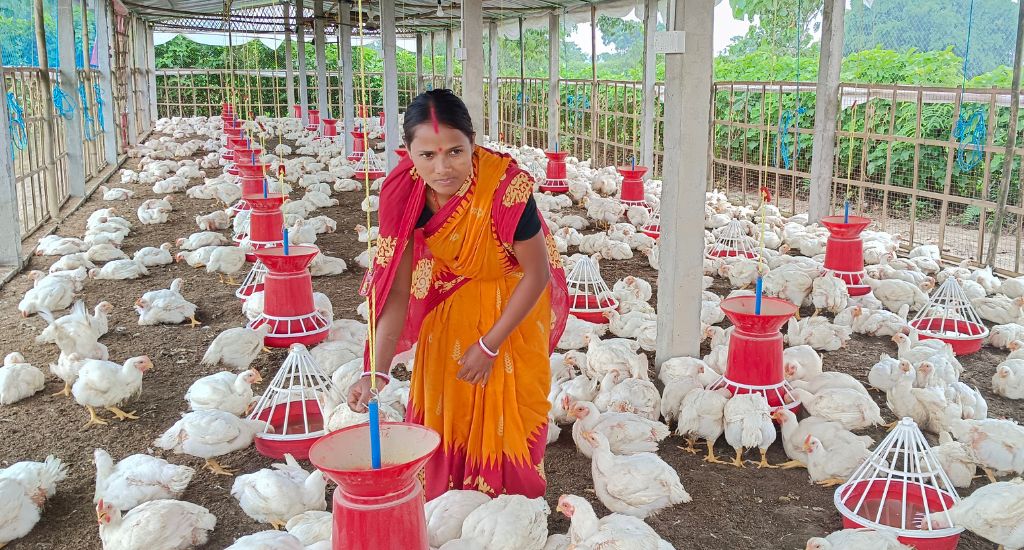
Pradip Kumar Dhar, an executive committee member of the West Bengal Poultry Federation, explained the disastrous impact of the ban. Unable to transport their goods, many farmers had to resort to selling their chickens at throwaway prices in the local market, leading to a domino effect of crippling financial repercussions.
Bablu Sarkar, a farmer in Nordebjot village, witnessed the decline in the price of broiler chicken. What used to command Rs 100-120 a kg in the wholesale market plummeted to half in local markets owing to the ban.
The losses pushed farmers to make difficult decisions.
“Once the bird becomes 40 days old and attains a weight of 2.5 kg, it becomes suitable for sale. Keeping them beyond this point would result in higher production costs and potential risks, as overfeeding might lead to the death of the chicken. So farmers are left with no alternative but to sell them at a lower price rather than see them dead,” Sarkar said.
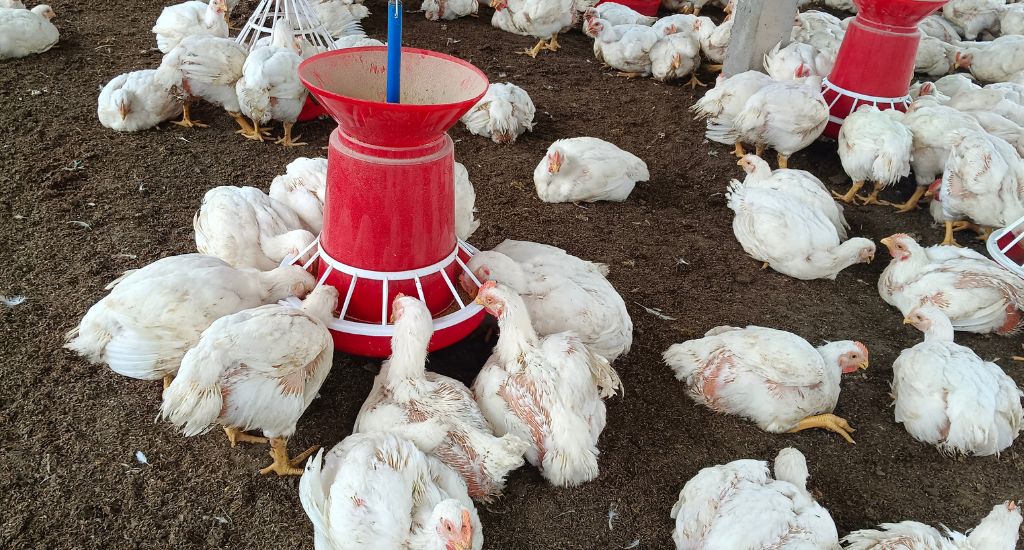
Hema Rai, a 30-year-old woman poultry farmer, echoed the collective bewilderment of the farming community, saying, “Bengal didn’t have a single reported case of bird flu, so why was this prohibition imposed upon us?”
Although the ban was eventually lifted, the situation has not returned to normal. Farmers also had to grapple with an illegal extortion racket at the Bengal-Assam border.
“Goons demanded exorbitant sums, reaching up to Rs 60,000, for each vehicle attempting to transport poultry into Assam or other states,” alleged Sumit Kumar Ghosh, vice president of West Bengal Poultry Federation.
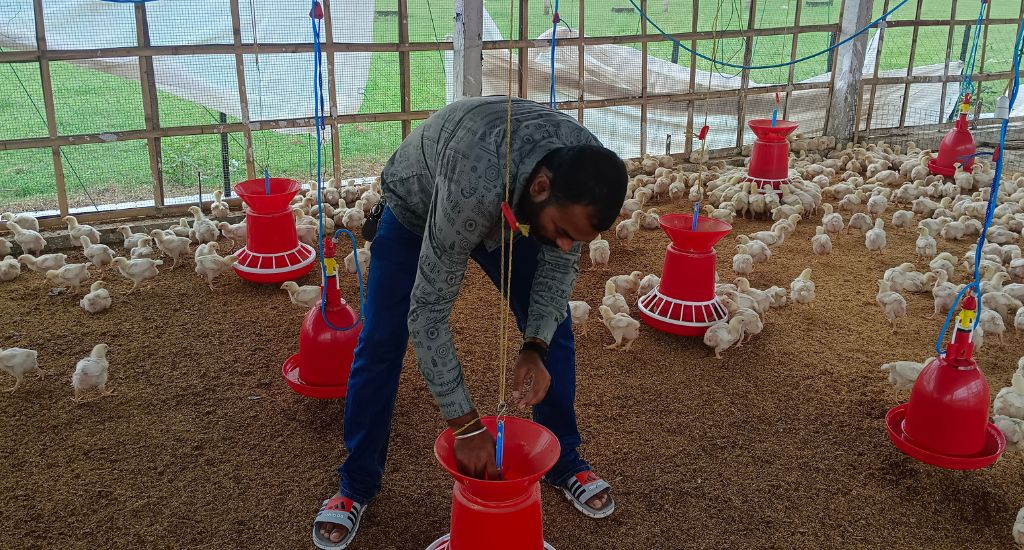
As a result, the number of vehicles making the journey plummeted from about 100 to a mere 8-10 daily. The farmers found themselves trapped between the struggle to comply with complex regulations and the claws of extortionists at the border.
Despite these hardships, the farming community has been relentless in their efforts to bring the matter to the attention of the authorities. Officials in Assam dismissed allegations of extortion as false.
The lead image at the top shows chicken in a poultry farm. (Photo by Gurvinder Singh)
Gurvinder Singh, a journalist based in Kolkata.